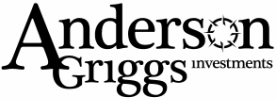|
I don’t know about you, but lately it seems as if I have this unidentified feeling of waiting for something. I know a lot of the specific things I’m waiting for; a haircut, movie theaters to reopen or movie studios to release titles for online rental, to find out if schools will reopen, a vaccine and a cure. I’m also waiting for more information related to business, the economy, and the stock market. As I’ve said before, even with most of the public companies having reported their First Quarter earnings, it is in the Second Quarter where all the unknowns will be known, or more specifically, how bad things were will be known. And I say “were,” because when the Second Quarter gets reported we will already be well into the Third Quarter. So what is the other unidentified thing I’m waiting for? What is that general sense of uneasiness that is constantly present during these strangely blending days? My best guess is that I’m waiting for those people in power, the experts, and the media to finally say, “Everything is alright.” The only problem with that is, there are no true experts in this current “unprecedented” situation, and furthermore… just like normal times, everyone is equally bad at predicting the future.
What this means is, my guess and your guess is as good as anyone else’s. John Mauldin, who publishes one of the most widely read free investment newsletters, Thoughts from the Frontline, said in his article Coronavirus Helicopter Money, “This is the time for very subjective judgements--backed up by compelling deductive LOGIC of a kind that has all but disappeared in today’s rage for “evidence-based truth”-- a fatuous concept at best.” Mr. Mauldin believes our best guidance in the current situation is not going to come from the mainstream business news reporting on big businesses, but rather the news from small businesses across America. That news does not hit the big broadcasts, but each of us can see it directly in our communities. Last Friday after work I picked up Carter from Gma and Gpa’s house and drove down Cherry Road on our way home. Every restaurant I passed at 5:45 had full parking lots. Our shopping district on Dave Lyle near the interstate had full parking lots all weekend long. Traffic was up, and I saw a quick graphic on the Worldwide Exchange showing national auto traffic increasing quickly into May. Rock Hill is obviously not New York City, but my personal, subjective and logic-based call from what I’ve seen, without getting into the argument of what is right or wrong behavior, tells me that consumer demand is present and will be there ready to meet controlled and limited reopening. We’ll obviously have to wait and see when it comes to additional “phases” of reopening, but it appears that demand and our behavior is willing to adapt positively to the threat of infection in every-day life. What about the markets? From the end of last year the S&P 500 and Dow Jones Industrial average dropped 31% and 35% respectively to their lows on March 23rd. From those levels they have increased roughly 28%, and as of May 15th remain down from the beginning of the year 11% and 17%. This abrupt and rough shake has left us all a little dumbfounded, but a feeling remains with us… is that downturn enough? Does the current decline already include the total decline in revenues and profits that U.S. companies have and are continuing to realize, or is another drop still in the picture? Why should I remain invested in the market? These same thoughts and questions are being felt by everyone, including the market experts. Last week David Tepper said he believes the current market is the second-most overvalued stock market he’s ever seen, second only to 1999. I’m assuming he is valuing things using a price-earnings ratio of the S&P 500, but using forward estimated company earnings. Normally, to calculate the price-earnings ratio you take the 12 month trailing earnings per share of the companies in the S&P 500 and then divide it by the current market price. Based on the market close of May 15, that gives us 2863.7 divided by $140, which equals 20.46. In other words, if you bought the market as a whole, you are paying 20 times the annual earnings of all the companies in the index. The long-term historical average price-earnings ratio of the S&P 500 is close to 16, but we have been seeing a PE of at least 20 regularly since 1991. However, when you do the same calculation using forward estimates of earnings (which are all guesses by analysts), you get a much different picture. FACTSET tells us current analysts estimate that earnings will decline by 19.7% for 2020. Using those estimates, we get a P/E of 25.47 (2863.7 divided by $112.42), representing a much more expensive market. This is where we need to use our subjective logic to make our decisions today, based on what we know now, and how we view the future. Like I said before, the experts are in the same pickle as the rest of us. On January 30th, Jerome Powell, our current FED Chief, said that markets are high, but that P/E valuation is okay in comparison to what you can get for risk-free investments (U.S. treasuries). However, last weekend he reported that investing in stocks is risky, and if the future related to the Coronavirus is negative, the markets could be affected negatively. His real point of the conversation was that the FED would not be “bailing” out the stock market. That has never been its charge, and it will not be in the future. Powell wanted everyone to realize there is no such thing as a “Fed Put” when it comes to market risk. The more positive message he gave back in January was also just reiterated by Robert Shiller, the Nobel Prize winner in Economic Sciences, and the co-founder of the S&P/Case-Shiller Home Price Index and Shiller P/E Ratio (CAPE ratio). Mr. Shiller’s P/E Ratio uses average earnings from the previous 10 years adjusted for inflation. He recently said that although the current CAPE ratio is 27, similar to where it was in 2007, this market level is supported by especially low real bond yields (bond yields minus inflation). Our subjective, logic-based view, or as we have described it now for years, our “common-sense” approach to investing, tells us this. Factoring in a 20% decline in earnings indicates stocks bought at this price could offer an earnings yield of 3.93%. As of May 15th, the dividend yield of our portfolio is 3.17%, and the dividend yield of the S&P 500 is 2.05%. The 10 year U.S. Treasury yields 0.64%, average 12 Month CD rates are 0.28%, and average Savings Account rates are 0.06%. The 12 month rate of inflation ending April of 2020 based on the Consumer Price Index by the U.S. Bureau of Labor Statistics was 0.3, which includes a decrease in energy of 17.7% over the same time frame. Even this small amount means your real rates on 12 month CDs and savings accounts are negative, and you are earning 0.34% if you loan your money to the government for 10 years. Based on the differences in these alternatives, even with the hopefully short-term risks and forecasted earnings reductions, we believe the investment interests for all of us, especially our long-term investments interests, are better served with a majority allocation to the U.S. equity markets. We are being paid an amount far in excess of the risk-free amount, to wait for a return to normalcy. And even if that “normalcy” is a slightly adapted difference to a slightly changed world, I believe every-day life a year from now will look boringly the same to most of us. I wanted to end with one quick acknowledgement. Even though Mr. Tepper’s comments last week were probably the cause for the nasty drop we had, I’d still like to thank him for the investment he is making here in Rock Hill. The approved Panther’s Training Center deal is pegged to be a $1 billion dollar investment. So thank you Mr. Tepper for what you see in the future of our fair town… although you could smooth things over a lot more by offering a local fellow money-manager a nice, cheap corner office, training-field side. Justin T. Anderson Comments are closed.
|
Kendall J. Anderson, CFA, Founder
Justin T. Anderson, President
Categories
All
Archives
April 2024
|
|
Common Sense Investment Management for Intelligent Investors
|



 RSS Feed
RSS Feed